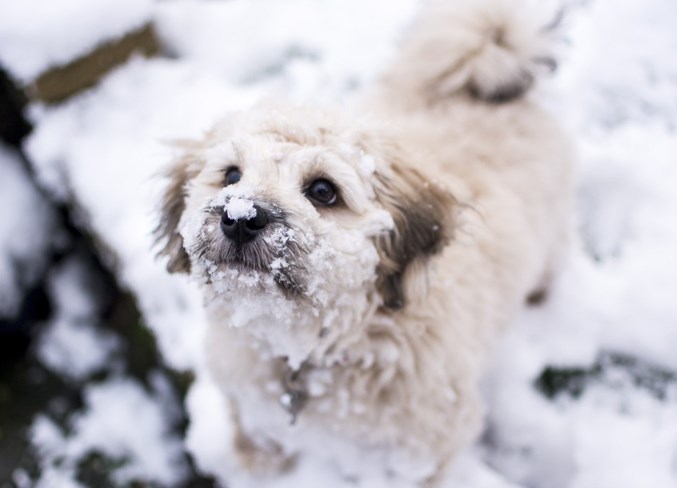Well, it was good while it lasted.
We've finally been hit with the kind of bone-chilling deep freeze that previously gripped a good chunk of Central and Eastern Canada, not to mention most of the U.S.
We all know how to cope with these temperatures by bundling up in layers and wearing warm headgear, gloves or mitts and scarves or neck warmers to prevent frostbite, right?
RIGHT?
But our pets don't have that opportunity.
We need to make sure our pets are as warm and safe as we're trying to be.
That's why the Wild Rose Humane Society has come up with the following tips to keep pets safe in cold weather:
• Keep a fresh supply of clean water available for your animals. Keep an eye on water sources to ensure they have not frozen over and do not use metal dishes. Use insulated, heated water bowls or automatic watering systems, if you cannot monitor water. Snow does NOT provide enough water for your animals, including horses.
• Antifreeze is poisonous. Quickly clean up any spills and keep your animals away. Even small amounts can be toxic. If you suspect your pet has ingested antifreeze, act quickly and contact a vet immediately. Signs of poisoning include weakness, unconsciousness, drooling, vomiting, diarrhea and panting.
• Do not over-exercise your dogs or horses in the cold.
• Keep an eye on dog paws as they can quickly become compacted with snow and injured by ice and salt. Short-haired, senior and young animals are especially susceptible to the cold. Dog coats and boots are an option to help fight the cold and winter walking conditions.
• Keep dogs and cats inside during storms. They can get easily disoriented.
• Leave your pets at home if you can. Temperatures in vehicles can drop very quickly and freeze your pets. Pets are also at risk of carbon monoxide poisoning if left in a running vehicle.
• Keep pets clean and dry. Their fur loses its ability to keep them warm when it gets wet.
• Road and sidewalk salt can irritate your dog's paws and is not good for them to lick. Try to avoid walking in it and wipe your dog's paws as soon as you get home.
• Cats and other small animals are often drawn to warm car engines, mufflers and the warmth from block heaters. Before you start your vehicle, bang on the hood to avoid starting your car and hurting an animal that could be hiding near the engine.
• Horses can live outside in the winter and don’t need to be blanketed, however they do need to have options for escaping the wind and moisture (eg. horse shed). Horses that have been clipped should be blanketed and those that have had their head and ears clipped need to be kept inside during extreme cold. All horses also need sufficient food to meet their winter caloric needs. Ice poses fracture risks for horses. Consult your farrier or veterinarian for options to reduce injury to your horses and to keep them healthy in the winter. If hauling horses, make sure the trailer is properly set up for winter. For more information please see the Horse Industry Association of Alberta.
Treat your pets like members of your family — because they are.
Remember: failure to provide adequate shelter, food and water is an offence under the Animal Protection Act.
For more information, visit www.wildrosehumane.ca or call 403-335-8297.

